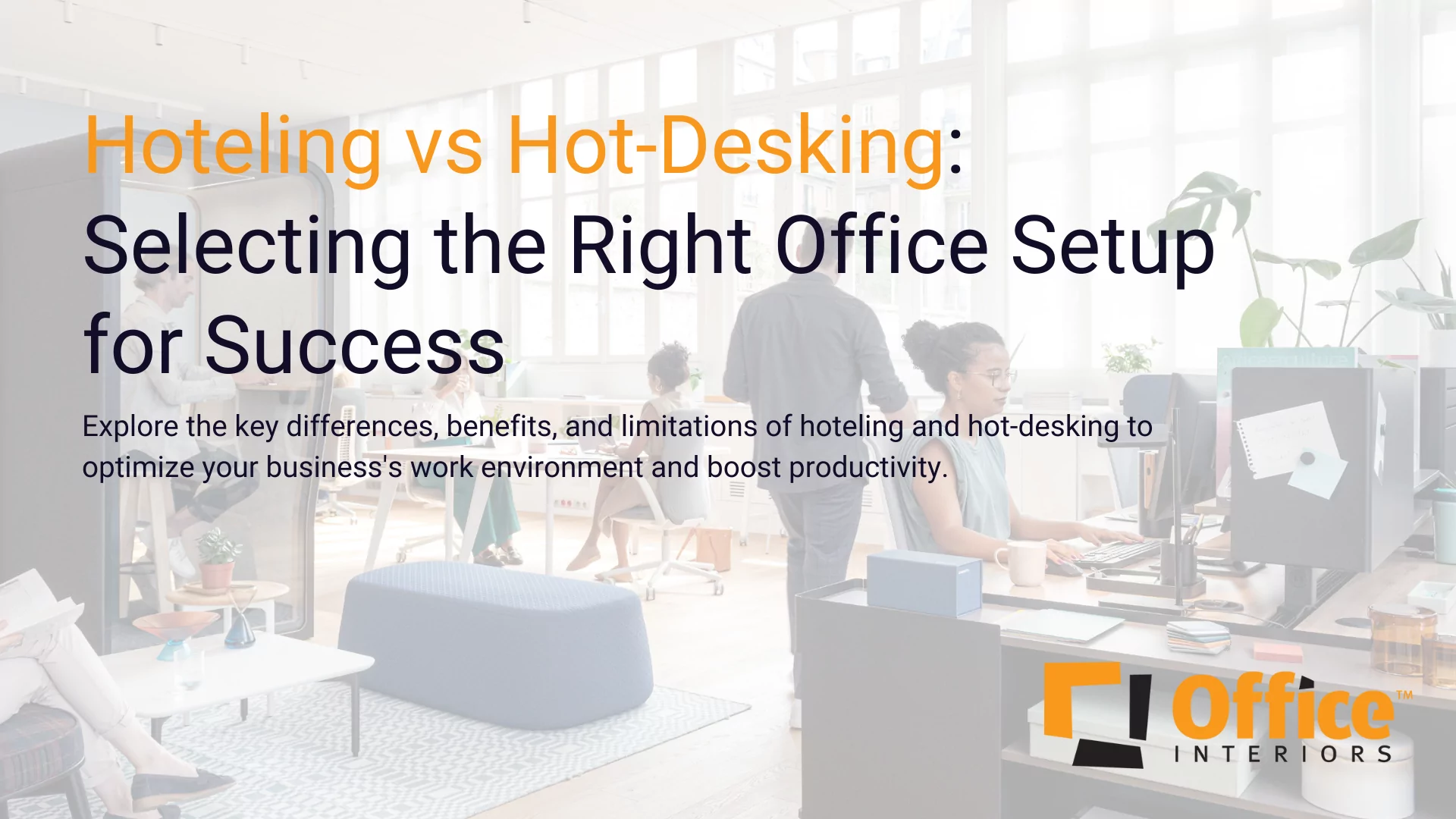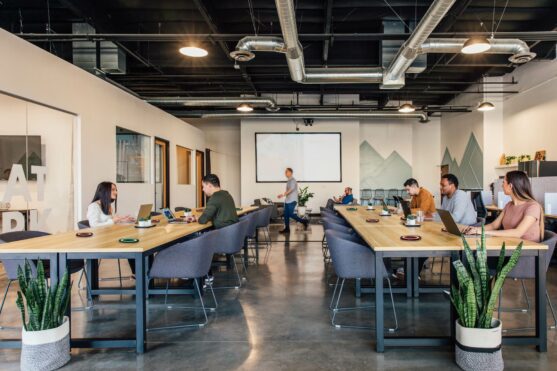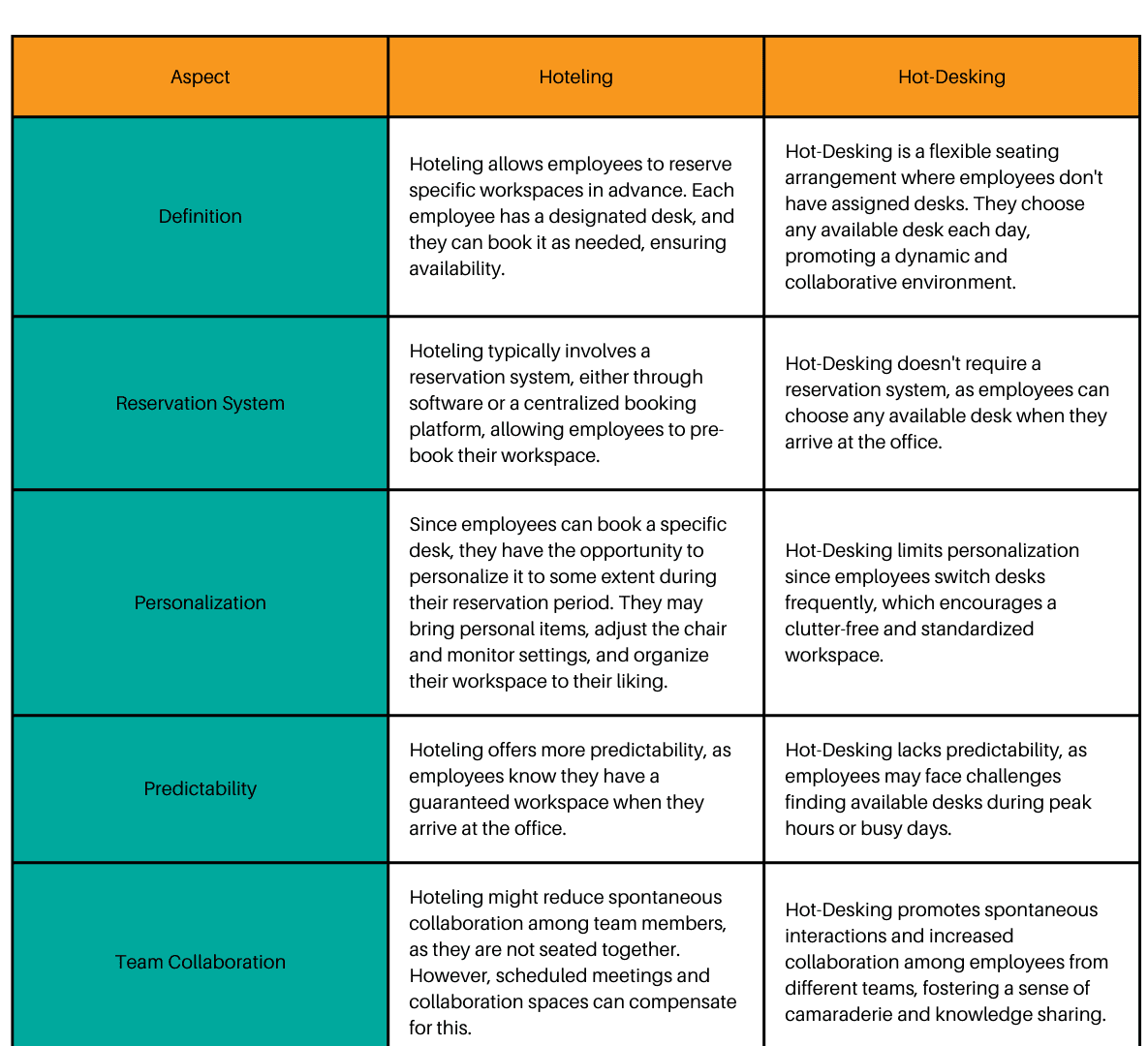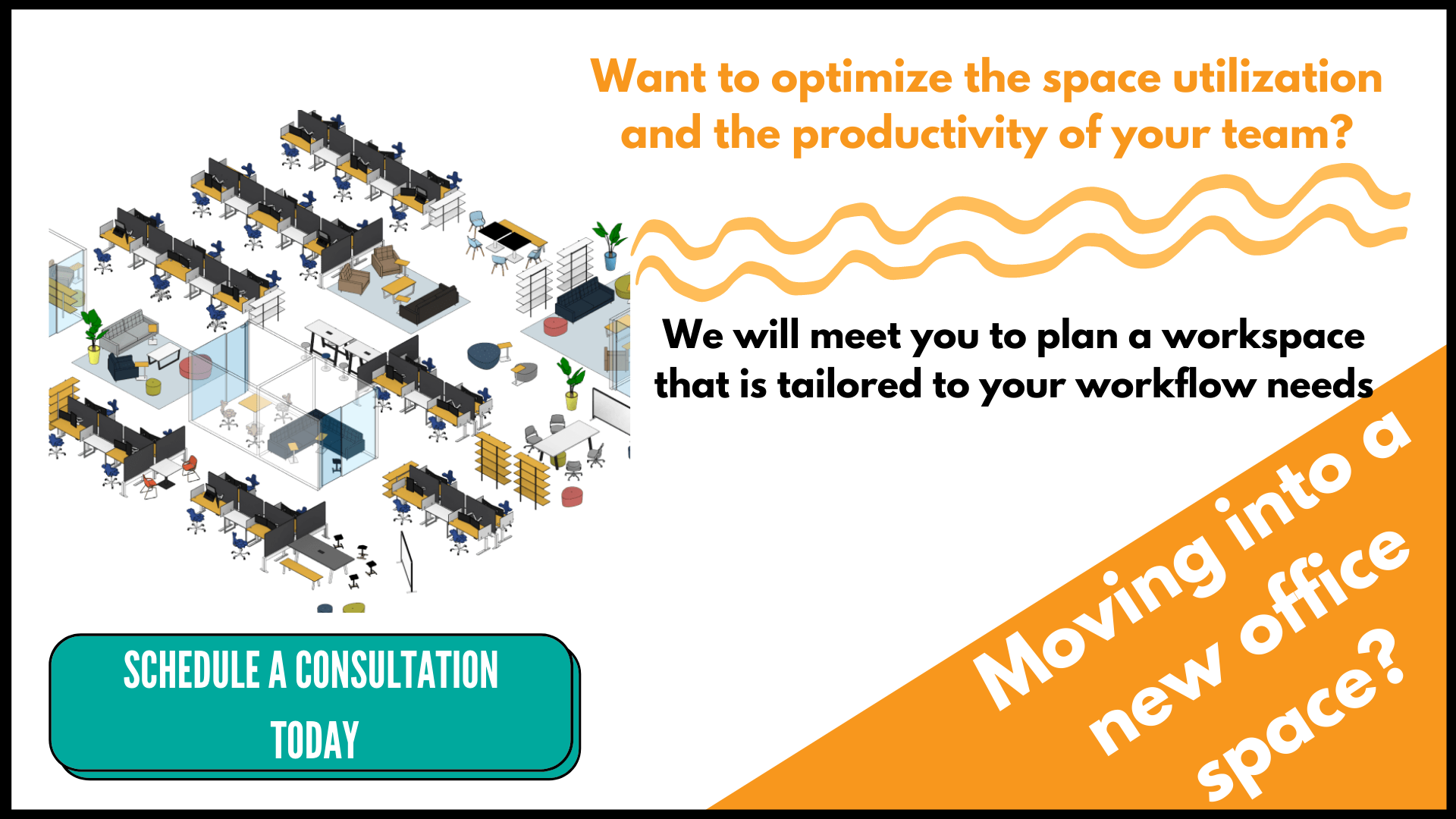In the era of flexible and hybrid workspaces, effective management of office environments has become increasingly important for businesses seeking to optimize productivity. To achieve a more comfortable, interactive, and efficient workspace, organizations are adopting management systems like ‘Hoteling‘ and ‘Hot-Desking.’ While these terms are often used interchangeably, they represent two distinct approaches to workspace management.
This article will delve into the key differences, benefits, and limitations of hoteling and hot-desking, enabling you to make informed decisions to optimize your business’s work environment and boost productivity.
What is Hoteling?
Hoteling is a strategic workspace management approach that allows individuals to reserve desks through a centralized system before occupying a workstation. This is similar to booking a hotel room, as employees check in and choose a specific desk, granting them control over their workspace preferences.
When hoteling, individuals must register and select their designated desk through the system before gaining access to the workspace. This mandatory procedure applies regardless of the number of vacant spots in the office. When it comes to selecting a workstation, hoteling offers a more systematic and formal approach to workspace management compared to hot-desking.
What are the Advantages of Hoteling?
- Secure a Specific Spot: With hoteling, individuals have greater control over where they work, allowing them to reserve a specific workstation for any duration. If an individual needs a set amount of time to focus intensely on a particular task, or if they simply know that they work best when they can base themselves at one desk and power through, hoteling allows them to do this. With hoteling, your desk will be there waiting for you, regardless of the time or day you arrive during your booking.
- Foster Collaboration: Hoteling allows team members to reserve workspaces close to one another, facilitating productive collaborations and teamwork.
- Support Remote Team Members: For remote employees, hoteling helps them feel more connected to the team during office visits, fostering a sense of belonging.
- Cost-Effective Office Space: By better utilizing your space, some companies will reduce their real estate footprint, though others may repurpose it instead.
- Flexibility for Meetings and Events: Hoteling enables businesses to allocate desks for specific meetings or events, ensuring attendees have designated spaces for focused interaction and collaboration.
What are the Disadvantages of Hoteling?
- Reservation Errors: The success of hoteling relies heavily on efficient reservation software. Any glitches or shortcomings in the system can lead to lost or double-booked reservations, potentially hampering productivity.
- Limitations for Large Teams: Hoteling may not be the most suitable option for companies relying heavily on extensive team collaborations. Designating private offices instead of individual desks can address this limitation in such cases.
- Limited Personalization: While hoteling allows some workspace personalization, certain employees may thrive better with a more flexible workspace model that enables them to personalize their designated spots. The absence of a dedicated space could negatively impact their morale, engagement, and productivity.
- Reduced Face-to-Face Interaction: Hoteling may lead to reduced face-to-face interaction among employees, affecting team cohesion and communication due to the lack of fixed workstations and increased use of remote work and virtual communication tools.
- Training and Adaptation: Introducing hoteling requires proper training and adaptation for employees to understand and embrace the system fully.
What is Hot-Desking?
Hot-desking, also known as ‘Shared Desks,’ is a workspace practice where employees are provided with desks as needed rather than having fixed workstations.
With hot-desking, workers have the flexibility to move around the office freely. The trend toward hot-desking is built upon the modern focus of encouraging flexibility, increasing interactivity between employees, and networking opportunities.
What are the Advantages of Hot-Desking?
- On-Demand Availability: Hot-desking enables individual workers or teams to find free workspaces quickly, catering to freelancers, remote workers, and travellers seeking short-term professional workspaces.
- Empower Employee Autonomy: Trusting employees with workspace choices boosts morale and productivity, as they feel valued and responsible for managing their work environment.
- Enhanced Organization: With hot-desking, users are required to clear desks for the next person, promoting cleanliness and professionalism in the workspace.
- Networking and Collaboration: Hot-desking fosters organic networking and collaboration opportunities as employees regularly interact with different team members.
- Resource Optimization: Hot-desking allows businesses to optimize office space utilization, potentially reducing the overall office footprint and associated expenses.
What are the Disadvantages of Hot-Desking?
- Uncertain Space Availability: One of the primary drawbacks of hot-desking is the lack of guaranteed workspace availability when an employee needs it. This uncertainty can disrupt productivity, as workers may have to wait for space or seek alternative spots to work.
- Security Concerns: Regularly changing workspaces raises security risks for personal belongings and sensitive information. Employees using hot-desking spaces need to be more vigilant about safeguarding their possessions, and organizations may face increased risks of security breaches if sensitive documents are not properly handled and stored.
- Health and Safety Considerations: The high turnover of employees using various workspaces in a hot-desking model can contribute to the spread of illnesses in a workplace. As a result, stricter cleaning protocols and employee education are necessary to maintain a sanitized and safe workspace.
- Reduced Sense of Ownership: Some employees may struggle with not having a dedicated desk, leading to a decreased sense of ownership and attachment to their workspace.
Hotel Desking vs. Hot-Desking: Which is Best for Your Business?
When deciding between hoteling and hot-desking, consider your organization’s time management, space utilization needs, employee preferences, and company culture. Hoteling offers a controlled atmosphere with personalized workspaces, fostering productivity and collaboration. In contrast, hot-desking promotes flexibility and autonomy, making it an ideal choice for freelancers and remote workers seeking short-term office spaces.
In the hybrid work era, optimizing your workspace is essential for enhancing productivity and employee satisfaction. Understanding the differences between hoteling and hot-desking will help you make the right choice for your business. Whether you prefer a structured environment with personalized workspaces or a dynamic, flexible setup, your workspace strategy will play a significant role in your team’s success.
At Office Interiors, we strongly believe that it is our responsibility to provide our customers with the answers and information they need to make an informed decision. To explore how our team can further optimize your workspace, reach out to us by clicking here.
Ahona Saha
Marketing Assistant
Office Interiors






